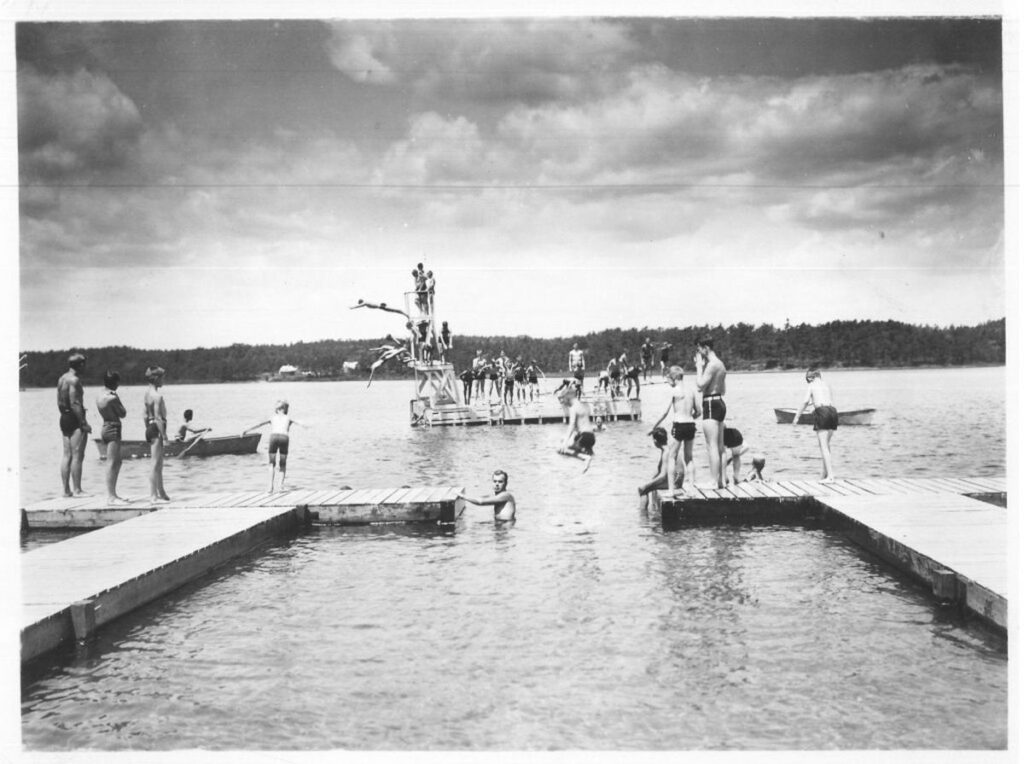In June 2024, I flew back to Massachusetts with my sons, Mason and Colby, for a 72-hour whirlwind trip to celebrate the Boston Celtics’ NBA Championship. We made the most of every minute—cheering at the parade, climbing rocks and jumping into the ocean from my cousin Stevie’s boat near World’s End, and laughing with family like we’d never left.
On our final morning, we grabbed breakfast at Easter’s Country Kitchen in Weymouth with my godmother, Auntie Angie. She sat across from us in the booth, still feisty as ever, cutting into her pancakes while stealing bites from Mason and Colby’s plates when they weren’t looking. As the coffee cooled and the conversation turned sentimental, I said, “Before we head to the airport, I want to stop by the cemetery. I want to introduce the boys to Aunt Loretta, Pa, and Nana.”
Auntie smiled and nodded. “It’s a beautiful day for it.”
We pulled into Saint Francis Xavier Cemetery under a soft June sun. The grass was green and freshly cut, the trees swaying gently in the breeze, and for a moment the whole place felt peaceful, almost alive.
As we stepped out of the car, Auntie looked over at Mason and Colby and said, “You boys jumping off those rocks yesterday reminded me of a story about me and my sister, Loretta.”
She paused, then turned to me. “I don’t think I’ve ever told you this before.”
I didn’t say anything. I could tell by her voice that we were about to hear something special.
“It was the summer of 1947,” she began. “I was 14. Loretta was 12. It was one of those hot summer days when the whole neighborhood was itching to get out of the house. The uncles—Guido, Gerry, and Ollie—decided to take us girls to Plymouth to swim at Fearing Pond. Janice, Ruthann, Mary Cipullo—we were all packed into the car. Aunt Mary and Aunt Dee came too. Pa was working that day, thank God.”
She laughed, but there was something reflective in her voice.
“Now, Loretta and I couldn’t swim. That didn’t stop Uncle Gerry, though. He decided to walk us out to the floating dock in the middle of the pond. It was one of those big rectangular docks—no railings, slick with water from all the kids jumping in. The dock wobbled with every step.”
She looked at the boys and leaned in. “We were standing out there, just trying to keep our balance, when suddenly Loretta slipped. She lost her footing and fell into the water. As she went down, she grabbed onto me and pulled me in with her. I was screaming, ‘Get off of me, Loretta!’ but she was panicking, pushing me under, trying to reach the dock. We were both drowning.”
Auntie paused. Colby’s hand had instinctively found hers.
“Uncle Gerry jumped in after us, but the water was too deep to stand. He kept going under, trying to push us toward shore, but every time he did, he swallowed more water. We were all flailing. People on the dock and on the beach were yelling for help. We just kept drifting further out.”
She took a breath, as if reliving it.
“That’s when Uncle Ollie ran into the water—fully clothed, jeans and all. He swam straight to me, told me to kick, and held me up until we got to shore. Uncle Guido dove in after Loretta. Aunt Dee had to jump in to help Gerry, who was exhausted and barely above water.”
Mason was wide-eyed. “What about the lifeguard?”
Auntie rolled her eyes. “Standing on the beach, flirting with some girl. Didn’t move an inch. After it was all over, Ollie walked up, tapped him on the shoulder, and said, ‘Excuse me, miss,’ and then lit into him: ‘What is the matter for you? My nieces almost drown! Do your job!’ He was ready to fight. Guido had to pull him away.”
We were all quiet, picturing it. The panic. The chaos. The fight for air. And somehow, the fact that they all made it out.
“Did Pa ever find out?” Colby asked.
She smirked. “Not right away. We swore a pact. Pa—your great-grandfather—was at work that day. We were terrified of what he’d say.”
She turned back toward the headstone.
“But about three weeks later, I fainted in church. Pa picked me up and started to carry me out of the church to get some fresh air, and this woman standing nearby goes, ‘Isn’t this one of the girls who almost drowned at Fearing Pond?’ That was it. We were cooked.”
She chuckled to herself. “That night, Pa called a meeting of the brothers. Didn’t say a word—just gave them that death stare of his. Then finally cracked that crooked smile, poured a drink, and said, ‘If anything like that ever happens again…’ and raised his glass. He never finished the sentence. He didn’t have to.”
We stood there in silence, the breeze brushing across the graves as if Loretta herself had come to listen. I looked over at Mason, who gently brushed a leaf from Loretta’s headstone. Colby squeezed Auntie’s hand.
I’d never heard that story before. Not once. And yet, in that moment, it became part of us—part of our family’s fabric, sewn into the legacy we carry forward.
The Fearing Pond story could’ve ended differently. But it didn’t. And now, nearly 80 years later, it lives on—not just in memory, but in the telling.
It’s more than a near-drowning. It’s a story of courage, family, and instinct—the kind of legacy you carry with you, even if you never lived it yourself. The kind that reminds you where you come from.
Sometimes the people who shape us most are the ones who jumped in without hesitation—jeans and all.
